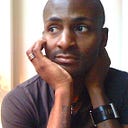Member-only story
Blackness Is A Cage

I still remember the day I learned that I couldn’t take my blackness for granted.
I was around 11 years old, it was the first day of summer camp, and I was looking for friends. So I scanned the room and made a beeline for the only other kid with a Transformers lunchbox. His name was Rafi.
We started with the standard “get to know each other” questions for 11-year-olds; which Transformer was the coolest? Favourite ninja turtle? Could Batman win a fight against Spiderman? But something seemed to be bothering him. After a few minutes, in that way only children can, he spat it out.
“You don’t sound black,” he said.
And even at that young age, I understood what he meant; black people weren’t supposed to speak “properly.”
Until then, my skin had felt indelible. Like the colour of my eyes or the shape of my fingernails. A fact, not an identity. So the discovery that there were membership requirements was disorienting. Like discovering there were rules to being an Earthling.
And worse, the feeling that “proving” my blackness meant pretending to be less capable than I was.
But looking back, I can’t help but think that even this was progress.
